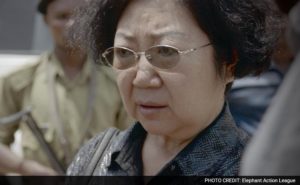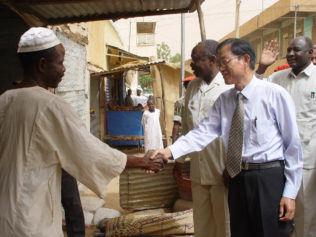
Until now.
Yang was detained in the Tanzanian capital Dar es Salaam after a high-speed chase and is apparently the most prominent Chinese national charged with wildlife trafficking in Africa. The short, bespectacled owner of a well-known Chinese restaurant doesn’t fit the image of a poaching kingpin, but that’s exactly what she is, according to Tanzanian officials.
Yang was behind an illicit trade worth millions of dollars, using her ties to the Chinese and Tanzanian elite to move ivory across the world, officials said. Ivory trafficking has resulted in immense damage to wildlife across Africa, but particularly in Tanzania. Between 2009 and 2014, the country’s elephant population plummeted from 109,051 to 43,330.
“She was at the center of that killing,” said Andrea Crosta, the executive director of Elephant Action League, a U.S.-based environmental watchdog group.
China’s role in Africa’s poaching crisis is no secret. The country consumes tons of ivory every year, much of it mixed into holistic medicine with no proven value. That demand has driven low-level poachers across the continent to massacre elephant and rhino populations. But the role played by Chinese business people based in Africa has been hazy.
The story of Yang, who will now be tried in a Tanzania court, might change the way people think about the global ivory trade. If she is convicted, it will turn out that one of Africa’s wildlife-trafficking kingpins was also one of its most prominent Chinese interlocutors.
According to investigators, Yang came to Africa in the 1970s, just as China was beginning construction on a railway in Tanzania. She was a translator back then, one of her country’s first trained Swahili speakers.
Read more at washingtonpost.com


